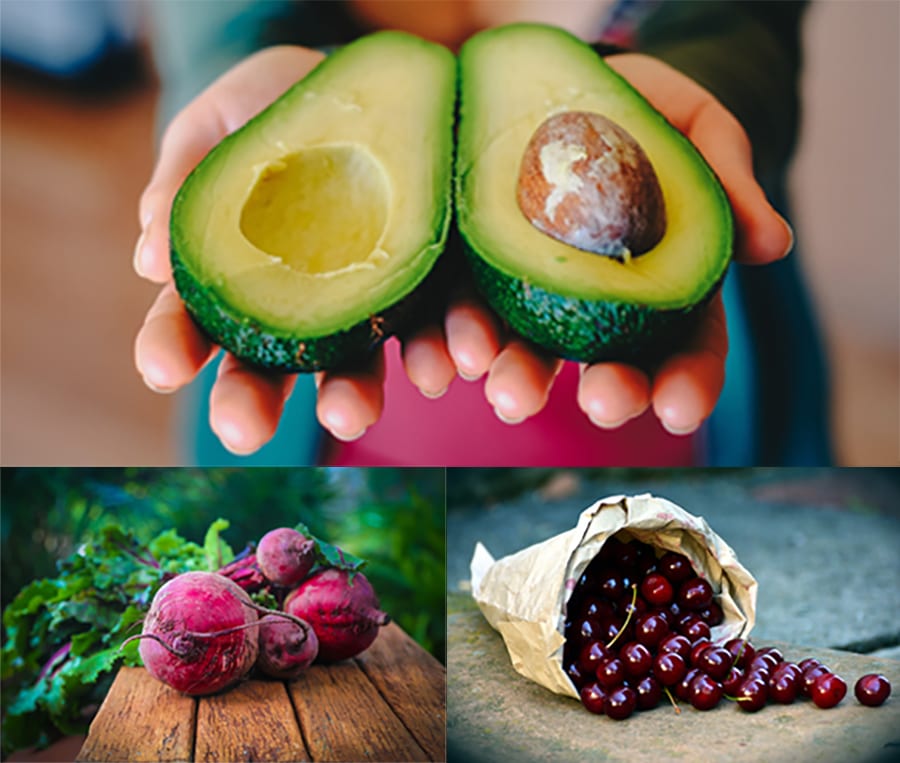Add heart-healthy produce to summer shopping lists

BY KAITLYN WEBB, MS, RDN
– We are approaching the end of July, and summer is going strong. While our social activities may look a little different this year due to the pandemic, one thing has not changed: summer produce!
Eating seasonal produce has so many benefits. My personal favorite is that the produce is more affordable, but did you know that seasonal produce is also richer in flavor and higher in nutrients? This is because in-season produce is ripened on the vine or tree and picked fresh for consumption. Often, off-season produce is picked, transported a longer distance and then artificially ripened, which weakens the flavor and nutrient content.
One of the greatest benefits of eating produce is the fiber and micronutrient content that supports heart health. On average, most Americans only consume 50-60 percent of the recommended amount of fiber each day. Studies show that getting an additional 7 grams of fiber from roughly 1 cup of vegetables or 2 servings of fruit may lower risk of developing cardiovascular disease by 9 percent. If you are looking for a good summer goal, aim to consume at least 3-5 servings of fruits and vegetables each day.
Summer is also the perfect time to support heart health by getting outdoors, breathing in fresh air and getting active. Healthy living habits that include physical activity and positive dietary choices play a strong role in overall health, particularly heart health.
Interested in some heart healthy summer produce? Check out the list below and add to your next summer shopping list!
AVOCADOS
Did you know that a single avocado contains nearly 20 different vitamins and minerals as well as beneficial macronutrients? Peak avocado production occurs during the summer months and one avocado alone contains 9 grams of fiber – that’s over a third of your daily recommended fiber intake! Additionally, consumption of monounsaturated fats, like the fats found in avocados, has been shown to reduce risk of heart disease by lowering LDL cholesterol. Blend with berries, low-fat milk, and ice for a quick avocado smoothie.
BEETS
Rich, ruby red beets are packed full of betaine, a phytochemical that can help fight free radicals and prevent chronic diseases. Additionally, beets are a good source of potassium, fiber, and nitrates which are all essential nutrients for heart health. Nitrates are converted to nitric acid in our bodies, which can assist with the transport of oxygen, can improve blood flow, and may reduce blood pressure. If you are new to beets, try roasting with a drizzle of balsamic vinegar or with an orange juice glaze.
CHERRIES
One serving of cherries contains 3 grams of fiber, is a good source of vitamins A and C, contains potassium and is rich in anthocyanins. Anthocyanins are a group of antioxidants that may prevent against heart disease and cancer. Anthocyanins have been shown to enhance memory and cognitive function as well. While cherries are in season during the summer months, there are so many ways to enjoy cherries year-round. You can eat them fresh, frozen, canned, or juiced. You can also eat them dried or even in wine.
Don’t forget your summer produce list and your face mask on your next grocery shopping trip!
– Kaitlynn Webb is a Registered Dietitian Nutritionist at Mountain Empire PACE. She earned a Master’s in Science in Clinical Nutrition from East Tennessee State University.
Get Updates From MEOC
Categories
MEOC Newsletter
April 2022 Stepping Stones - April 2022 Stepping Stones
February 2022 Stepping Stones - February 2022 Stepping Stones